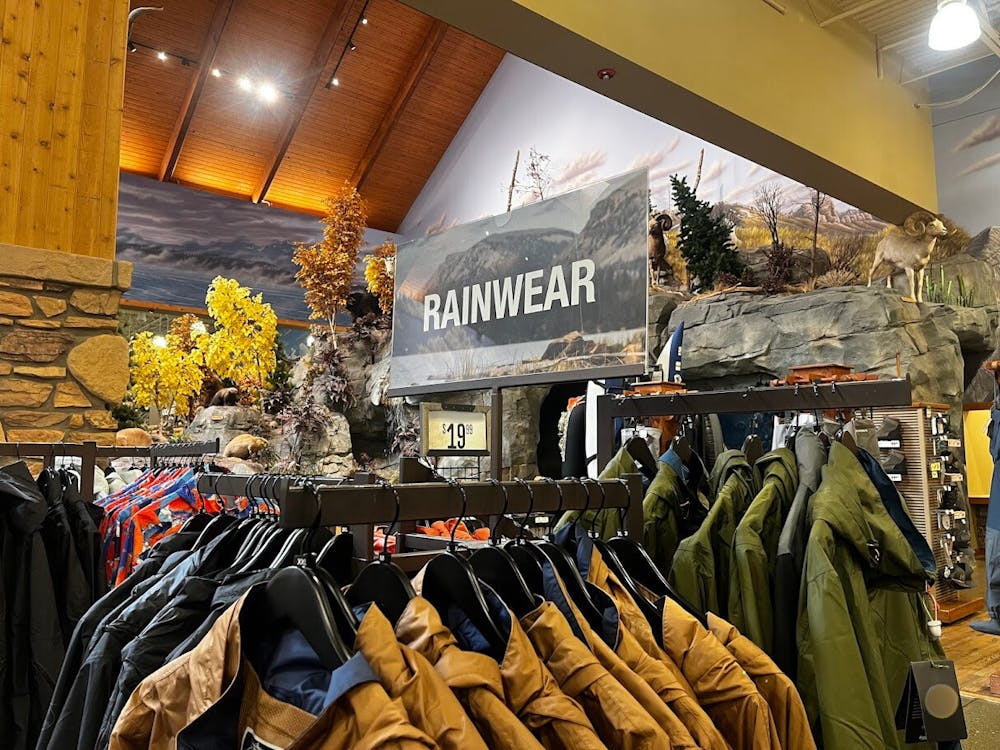As Washington enters its annual rainy season, outdoor enthusiasts will be out in droves getting all kinds of waterproof gear to keep them dry. Many of these shoppers may be unaware though that their typical cloudy-day purchases can contain harmful chemicals that pose significant risks to the environment and themselves.
In 2023, under the Toxic Pollution Law, Washington State adopted the rule for Safer Product Restrictions and Reporting. The rule targets per- and poly-fluoroalkyl substances, a group of chemicals widely known for their helpful water-resistant properties and potential links to health effects, including cancer, reproductive health and hormonal disruption.
The Washington State Department of Ecology implemented these new standards in the Safer Products for Washington program. In September 2024, the department published an updated preliminary draft rule that aims to place additional restrictions on 12 consumer product categories containing intentionally added PFAS.
The program will conclude the ruling for cycle 1.5, phase 4 by December 2025, which will prohibit the manufacturing, selling and distributing of items such as apparel, gear and cookware that use PFAS as soon as January 2027. There will also be a public webinar for cycle 2 phase 2 on Nov. 14, 2024, paired with a public comment period, to be announced once the new report is published.
Impacts and solutions
Dr. Justin Rewerts, a chemist working with the Department of Ecology, explained his work with the Safer Products for Washington program.
“We take a tiered approach,” Rewerts said. “We try to get creative with our thinking and look for — not just chemical alternatives — but what we can do presumably to phase [PFAS] out.”
PFAS are also known as forever chemicals because they don’t degrade over time within our bodies or the environment. For this reason, PFAS can be found in food and the bloodstream of animals and people alike.
Western Washington University Environmental Science Professor Ian Moran shared his insights on alternative products and the complications of replacing PFAS in consumer textiles.
“We don’t want the persistence [of forever chemicals] — the thing we do want is durability,” Moran said. “We want a product that we apply once and it stays forever, but when we put [it] out in the environment, we don’t want it to stay forever.”
Durable Water Repellents, a potential alternative, are an existing chemical blend used as a finishing coat in manufacturing or as a take-home product for restoring water repellency in textiles after use. The downside to DWRs is that they lack durability and need to be reapplied frequently, dismissing them as an equivalent replacement for PFAS.
Durability concerns
Local businesses have also begun responding to the state’s efforts to regulate PFAS in treated gear. Chris Gerston, owner of Backcountry Essentials in downtown Bellingham, said that although he was unaware of the Safer Products for Washington program, he supports the state’s initiatives to improve outdoor product sustainability.
“The outdoor industry has been trying to be more environmentally conscious across the board,” Gerston said. “Now, people are more aware of environmental hazards and much more supportive of products being sustainable than they were a long time ago.”
With stricter regulations on PFAS underway, residents and business owners are also concerned about product quality and pricing. Many unknowns still exist about treatment alternatives and what will happen to older products when new products are introduced, said Gerston.
“Predominantly being a ski shop, if it’s not waterproof, people don’t really trust it,” Gerston said. “We’re in a buying group with [around] 100 stores from across the country… everyone’s waiting to see [what will happen next].”
Certifications and consumer safety
At present, the Department of Ecology is working with two third-party certification programs to boost consumer awareness at retailers: Cradle-to-cradle and the United States Environmental Protection Agency. External toxicologists review certain chemical ingredients in consumer products to confirm them before companies label products with certification.
“We’re really trying to create visibility for those programs because it would be the most straightforward way for people to buy safer products,” Rewerts said.
As the Department of Ecology continues to work with manufacturers to ensure compliance with the Safer Products for Washington program, Rewerts hopes for Washington residents’ support for more certification programs and more advocacy for safer consumer products.
“If we can get more members of the public to say, ‘Hey, we would like it if there were a certification program that indicated that products were safer…so I don’t need a PhD to buy safe products.’ We need that,” Rewerts said. “Keep being vocal about [this] because that will create the desire for manufacturers to want to certify their products…and it will help everyone in the long run.”
Sabrina Diamond (she/her) is a City News reporter for The Front. She is an involved public relations major at WWU. Sabrina serves as the Director of Events and Communication for WWU’s PRSSA Chapter and proudly represents the community of future PR professionals. In her free time, she enjoys playing cozy video games like Stardew Valley. You can reach her at sabrinadiamond.thefront@gmail.com.






